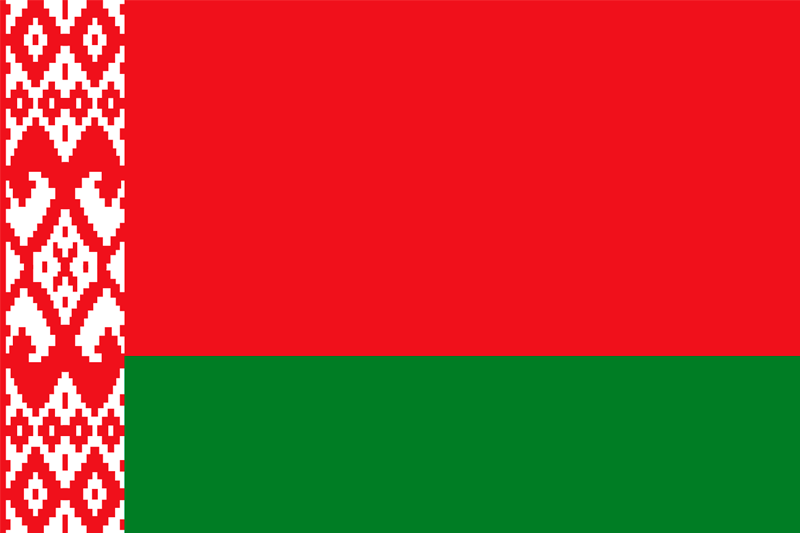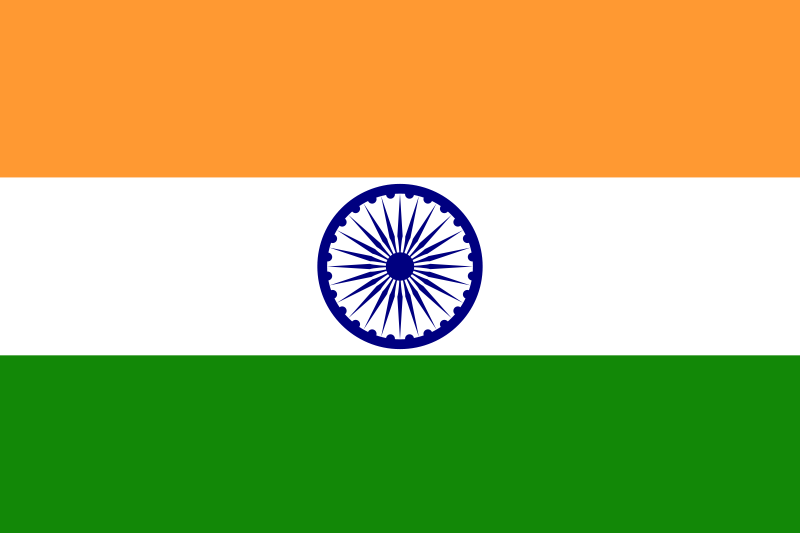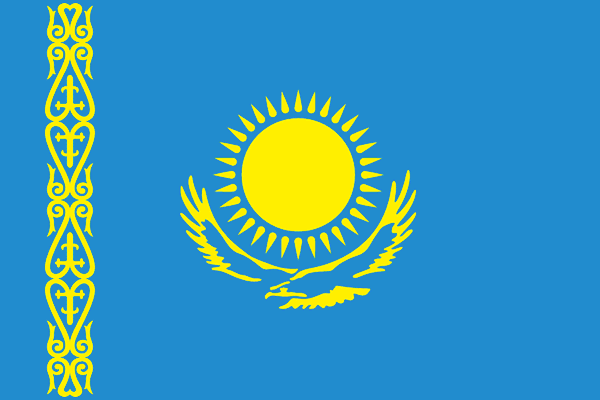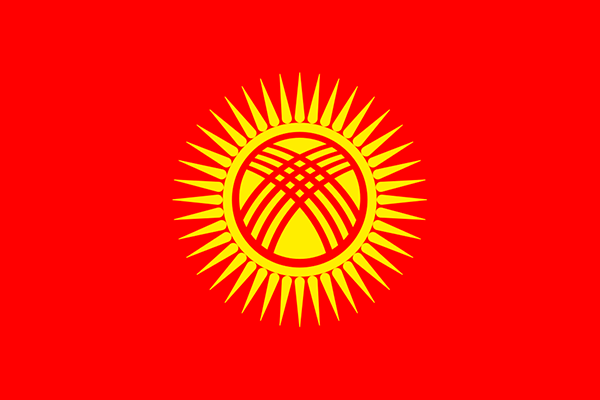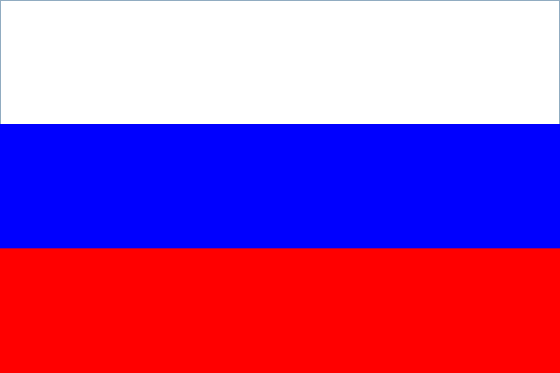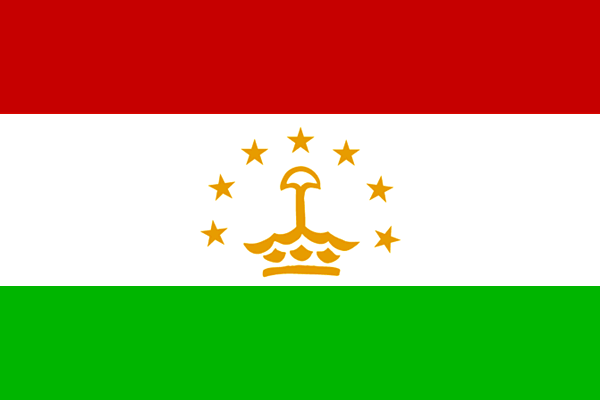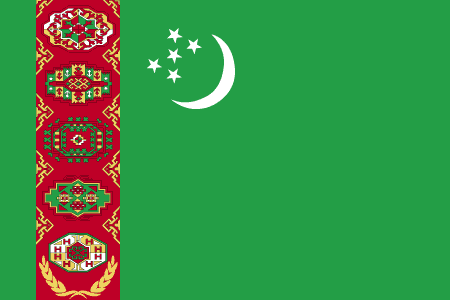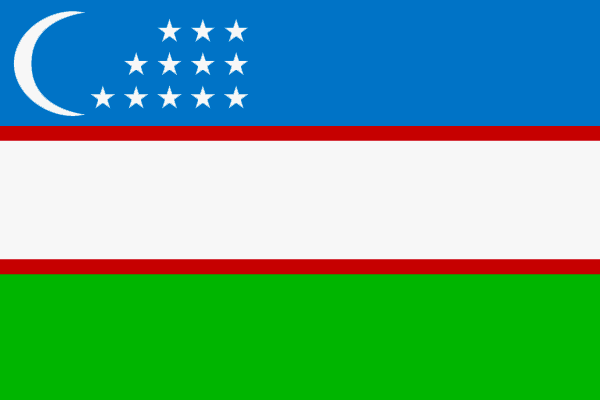
Republic of Uzbekistan
Legal system
The legal system of the Republic of Uzbekistan is based on the Roman-Germanic Law System. The Constitution of Uzbekistan was adopted on December 8, 1992.
According to the Constitution, the system of state power of the Republic of Uzbekistan is based on the principle of separation of powers into legislative, executive and judicial ones.
The highest state representative body is the Oliy Majlis, which exercises legislative power. It consists of two chambers – the Legislative Chamber and the Senate.
The executive power is exercised by the Cabinet of Ministers of the Republic of Uzbekistan.
Presidential and parliamentary elections are held once every five years. There are five political parties in the country.
Economy and financial sector
In 2019, GDP of Uzbekistan made up 511,838.1 billion soms (57,9 bln USD) with GDP growth of 5,6%. GDP per capita in 2019 made up 15,242.0 thousand soms (1,724.4 USD).
The export structure is formed by gold (28.2%), services (19.7%), energy and oil products (14.5%), textile and textile products (9.3%), food products (8.8%), ferrous and nonferrous metals (7.2%), chemical products (5.0%), machinery and equipment (2.4%).
The organizations conducting transactions with cash or other property are banks and other credit organizations; professional participants of the securities market; exchange members; insurers and insurance intermediaries; organizations rendering leasing services; organizations conducting money transfers, payments and settlements; pawnshops; organizations conducting lotteries and other games based on risk; persons performing operations with precious metals and precious stones; persons rendering services and participating in operations related to purchase and sale of real estate; notary offices (notaries), law firms (lawyers) and auditing organizations – when preparing and executing transactions on behalf of clients.
The traditional two-tier banking system headed by the Central Bank of the Republic has been introduced in Uzbekistan.
The Central Bank is a regulator of the banking system and does not provide financial services, except for servicing some ministries and agencies, as well as its subsidiaries.
Commercial banks are divided into public, private and foreign capital banks.
Financial Intelligence Unit
In April 2006, national financial intelligence unit (FIU) was established by transforming the Department for Combating Tax and Currency Crimes under the General Prosecutor's Office of Uzbekistan into the Department for Combating Tax and Currency Crimes and Legalization of Criminal Proceeds under the General Prosecutor's Office of the Republic of Uzbekistan. Since 2018 – the Department on Combating Economic Crimes under the General Prosecutor's Office of the Republic of Uzbekistan.
The FIU of Uzbekistan belongs to the law enforcement type, as in addition to the financial information analysis tasks it is empowered to carry out investigative activities, pre-investigation and inquiry on economic and corruption crimes.
The head of delegation of the Republic of Uzbekistan to the EAG is the Deputy Prosecutor General - Head of the Department for Combating Economic Crimes Mr. Jakhongir Khatamov.
Agencies involved in the AML/CFT system
Law enforcement agencies of Uzbekistan involved in AML/CFT carry out prevention, detection, suppression, and investigation of AML/CFT-related crimes.
Functions in this area, in addition to the Department under the General Prosecutor's Office, are endowed to:
- General Prosecutor's Office of the Republic of Uzbekistan;
- State Security Service of the Republic of Uzbekistan;
- Ministry of Internal Affairs of the Republic of Uzbekistan;
- Central Bank of the Republic of Uzbekistan;
- Ministry of Justice of the Republic of Uzbekistan;
- Ministry of Finance of the Republic of Uzbekistan;
- Ministry for Development of Information Technologies and Communications of the Republic of Uzbekistan;
- National Agency for Advanced Projects of the Republic of Uzbekistan;
- State Customs Committee of the Republic of Uzbekistan;
- Antimonopoly Committee of the Republic of Uzbekistan;
- State Committee of Industrial Safety of the Republic of Uzbekistan;
- Capital Markets Development Agency;
- State Assets Management Agency of the Republic of Uzbekistan;
- State Assay Chamber under the Ministry of Finance of the Republic of Uzbekistan.
Legal framework
- Law of the Republic of Uzbekistan "On Combating Legalization of Criminal Proceeds, Terrorist Financing and Financing of the Proliferation of Weapons of Mass Destruction";
- Criminal Code of the Republic of Uzbekistan;
- Criminal Procedure Code of the Republic of Uzbekistan;
- Administrative Responsibility Code of the Republic of Uzbekistan;
- Law of the Republic of Uzbekistan "On Combating Terrorism";
- Law of the Republic of Uzbekistan "On Prosecutor's Office" (new version);
- Law of the Republic of Uzbekistan "On Execution of Judicial Acts and Acts of Other Agencies";
- Law of the Republic of Uzbekistan "On Accession of the Republic of Uzbekistan to the United Nations Convention against Corruption";
- Resolution of the Oliy Majlis of the Republic of Uzbekistan "On Accession of the Republic of Uzbekistan to the United Nations Convention against Illicit Traffic in Narcotic Drugs and Psychotropic Substances";
- Resolution of the Oliy Majlis of the Republic of Uzbekistan "On Ratification of the International Convention for the Suppression of Terrorist Financing";
- Resolution of the Oliy Majlis of the Republic of Uzbekistan "On Ratification of the United Nations Convention against Transnational Organized Crime";
- Resolution of the Oliy Majlis of the Republic of Uzbekistan "On Accession to the Convention for the Suppression of the Traffic in Persons and of the Exploitation of the Prostitution of Others and its Final Protocol";
- Law of the Republic of Uzbekistan "On the Central Bank of the Republic of Uzbekistan";
- Law of the Republic of Uzbekistan "On Banking Secrecy";
- Law of the Republic of Uzbekistan "On Microcredit Organizations";
- Law "On Banks and Banking Activity";
- Law of the Republic of Uzbekistan "On Insurance Activity";
- Law of the Republic of Uzbekistan "On the Notaries";
- Law of the Republic of Uzbekistan "On Advocacy";
- Law of the Republic of Uzbekistan "On Realtor Activity";
- Law of the Republic of Uzbekistan "On Exchanges and Exchange Activity" (new version);
- Law of the Republic of Uzbekistan "On Securities Market" (new version);
- Law of the Republic of Uzbekistan "On Payments and Payment Systems";
- Law of the Republic of Uzbekistan "On Audit Activity";
- Law of the Republic of Uzbekistan "On Postal Communications" (new version).
National legislation database of the Republic of Uzbekistan.
International cooperation
Uzbekistan is a EAG member state. Moreover, Uzbekistan cooperates with relevant departments of the UN, OSCE, SCO, CIS, European Union, World Bank, IMF, EBRD, ADB and other international organizations in the AML/CFT sphere.

 Login to your account
Login to your account Eng
Eng Рус
Рус